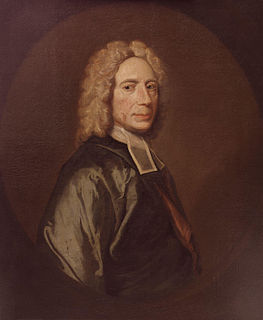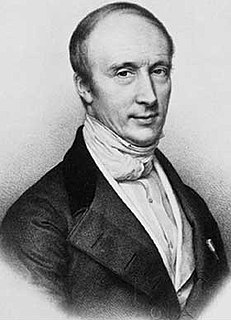A Quote by Isaac Watts
When general observations are drawn from so many particulars as to become certain and indisputable, these are jewels of knowledge.
Related Quotes
General observations drawn from particulars are the jewels of knowledge, comprehending great store in a little room; but they are therefore to be made with the greater care and caution, lest, if we take counterfeit for true, our loss and shame be the greater when our stock comes to a severe scrutiny.
And liberty cannot be preserved without a general knowledge among the people who have a right from the frame of their nature to knowledge, as their great Creator who does nothing in vain, has given them understandings and a desire to know. But besides this they have a right, an indisputable, unalienable, indefeasible divine right to the most dreaded and envied kind of knowledge, I mean of the characters and conduct of their rulers.
In the popular arena, one can tell ... that the average man ... imagines that an industrious acquisition of particulars will render him a man of knowledge. With what pathetic trust does he recite his facts! He has been told that knowledge is power, and knowledge consists of a great many small things.
We have no knowledge, that is, no general principles drawn from the contemplation of particular facts, but what has been built up by pleasure, and exists in us by pleasure alone. The Man of Science, the Chemist and Mathematician, whatever difficulties and disgusts they may have had to struggle with, know and feel this. However painful may be the objects with which the Anatomist's knowledge is connected, he feels that his knowledge is pleasure; and where he has no pleasure he has no knowledge.
There are and can be only two ways of searching into and discovering truth. The one flies from the senses and particulars to the most general axioms, and from these principles, the truth of which it takes for settled and immovable, proceeds to judgment and to the discovery of middle axioms. And this way is now in fashion. The other derives axioms from the senses and particulars, rising by a gradual and unbroken ascent, so that it arrives at the most general axioms last of all. This is the true way, but as yet untried.
Whereas young people become accomplished in geometry and mathematics, and wise within these limits, prudent young people do not seem to be found. The reason is that prudence is concerned with particulars as well as universals, and particulars become known from experience, but a young person lacks experience, since some length of time is needed to produce it.
Rousseau had it backwards. We are NOT born free. We are born in the chains of the random and the reflexive, and are ignorant and unreasonable by simple nature. We must learn to be free, to organize the random and detect the reflexive, to acquire the knowledge of particulars and the powers of reason. The examined life is impossible if we cannot examine, order, classify, define, distinguish, always in minute particulars.
First, it is necessary to study the facts, to multiply the number of observations, and then later to search for formulas that connect them so as thus to discern the particular laws governing a certain class of phenomena. In general, it is not until after these particular laws have been established that one can expect to discover and articulate the more general laws that complete theories by bringing a multitude of apparently very diverse phenomena together under a single governing principle.
But before any great things are accomplished, a memorable change must be made in the system of Education and knowledge must become so general as to raise the lower ranks of Society nearer to the higher. The Education of a Nation, instead of being confined to a few schools & Universities, for the instruction of the few, must become the National Care and expence, for the information of the Many.
In India there was a sense of time that does not tick with modern clocks, just as there is a knowledge that is not gained through science and empirical experiments. In the modern West knowledge is of objective, finite particulars in historical time. India recognizes that kind of useful information: it calls it "lower knowledge." Higher knowledge (paravidya) proceeds differently, or rather it doesn't proceed at all but enters history full-blown on the morning of a new creation.
Many of those whose task it is to broker the truth of God to the people of God in the churches have now redefined the pastoral task such that theology has become an embarrassing encumbrance or a matter of which they have little knowledge; and many in the Church have now turned in upon themselves and substituted for the knowledge of God a search for the knowledge of self.

































